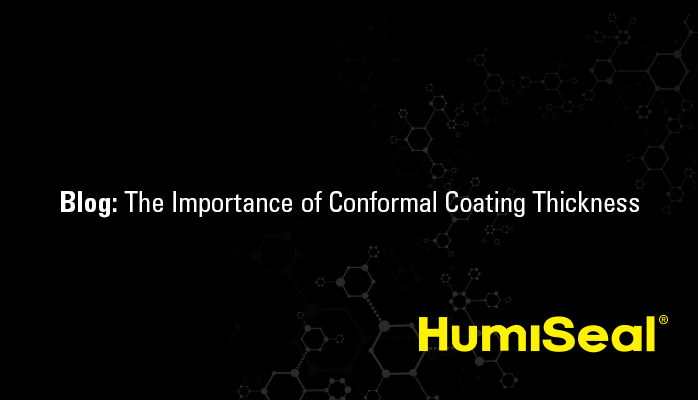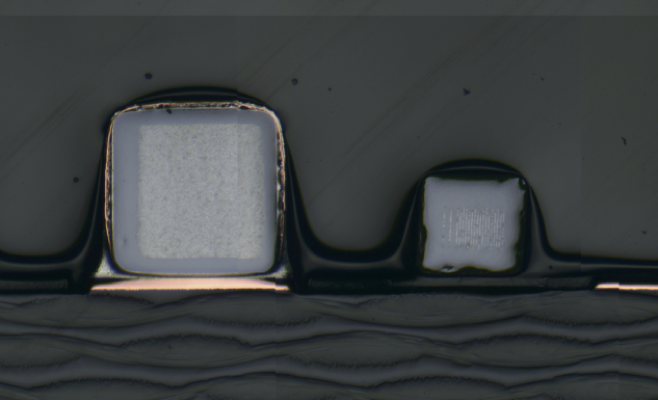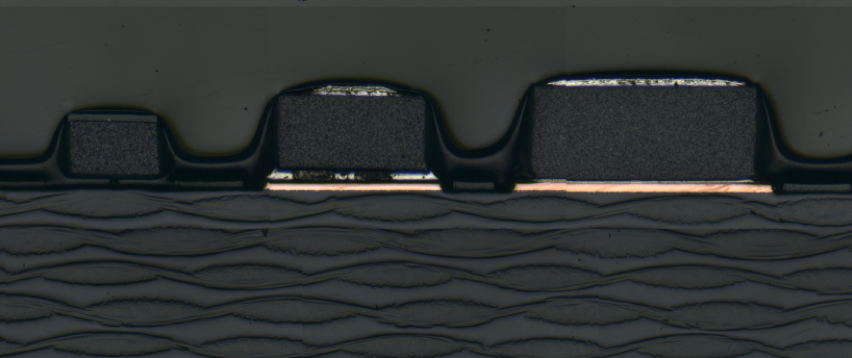
Conformal coating thickness is one of the most important characteristics to ensure long-term reliability of your electronics. A minimum coating thickness is essential to provide the required function of the conformal coating, but if a conformal coating application is too thick, it can actually have negative effects on your level of protection.
Which conformal coating thickness should be applied to reach optimal protection?
If we open the technical datasheet for any conformal coating, we will find a recommended coating thickness. It is usually specified as a thickness range and not as an absolute value. In order to understand why conformal coating manufacturers, suggest a particular range, we need to know some coating material qualification standards, such as IPC-CC-830, MIL-I-56058C or UL-746E.
Also read: A Quick Guide to understand IPC-CC-830B Qualification Standard or Explanation of the MIL-I-46058C Specification for Conformal Coatings

These standards involve various test methods for measuring conformal coating properties like moisture and insulation resistance, dielectric withstand voltage, flammability (as per UL94, for example), etc. All electrical, chemical and physical properties listed in technical datasheets are measured and evaluated using these standardised methods. These measurements are performed with different test specimens coated with thicknesses specified by standards. Typically used thicknesses are shown in Table 1.
Table 1. Conformal coating thicknesses used for standardised test methods
Type of Coating Coating thickness
AR – Acrylic 25-75 µm (1-3 mils)
UR – Urethane 25-75 µm (1-3 mils)
ER – Epoxy 25-75 µm (1-3 mils)
SR – Silicone 50-200 µm (2-8 mils)
XY – Xylylene 12.5-50 µm (0.5-2 mils)
SC- Styrenic Copolymer 25-75 µm (1-3 mils)
All coating material tests are performed within these thickness ranges, so it is the best reference for conformal coating manufacturers to give a thickness range where the given electrical and physical properties can be guaranteed.

It is true that thickness values given in technical datasheets are recommendations only and not requirements. During conformal coating application it is possible to deviate from these recommendations, but it is important to know the potential consequences:
- Low-coating thicknesses, such as below 25 µm (1 mil), can be risky as dielectric strength and other physical properties were not tested as per standardised test methods. It does not mean that conformal coating will not provide the required protection for the electronics, but standardised test methods do not extend to lower thicknesses.
- High-coating thicknesses above the upper limits rarely lead to additional protection for the PCB. A coating thickness that exceeds these upper limits tends to cause coating defects, such as cracking, CTE mismatch, and wrinkling as well as an increase of the likelihood of bubbles in the dry conformal coating film.
To sum up, the proper conformal coating thickness is one of the most important of all variables within the conformal coating process. It is critical to keep the conformal coating thickness inside the ranges specified by technical datasheets since coatings manufacturers perform all standardized testing within these ranges.
In addition, deviation from this increases the likelihood of coating defects mentioned earlier.
But how can you measure the thickness of a conformal coating application?
A previous blog introduced a method to measure wet conformal coating thickness. If you have not read it and you are interested in this technique: What is a Wet Gauge and How to Measure Thickness
In our next blog, we will introduce the most common methods for measuring actual or dry conformal coating thickness.
Contact us if you have any questions.






